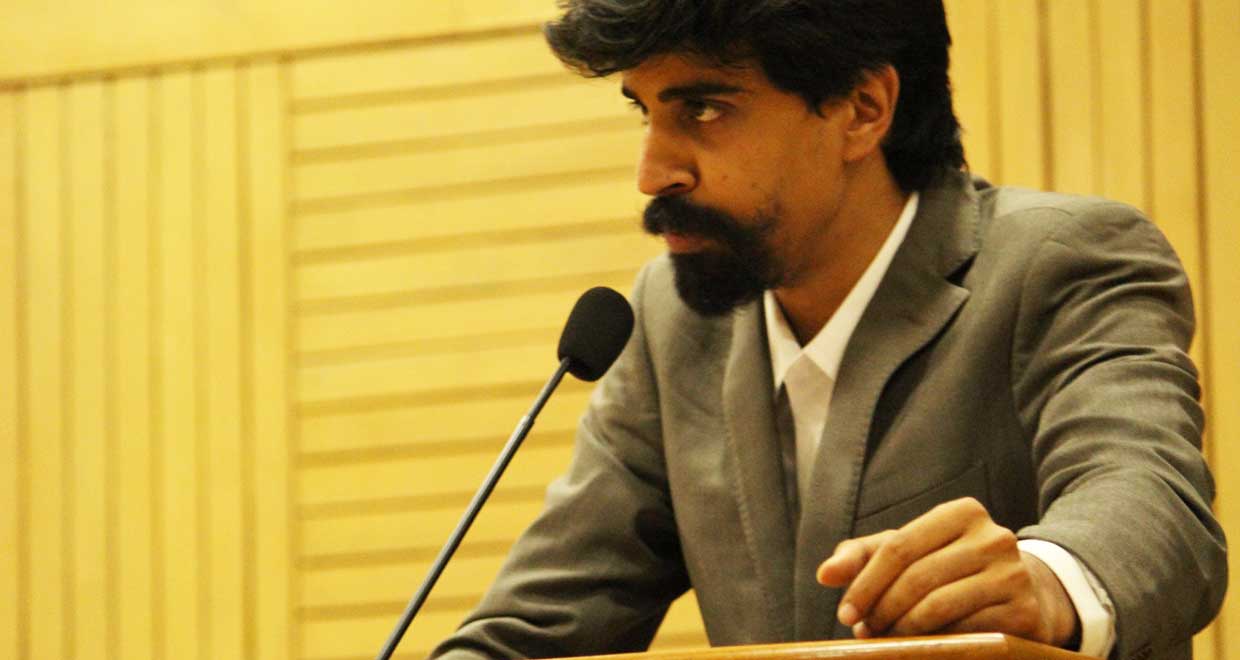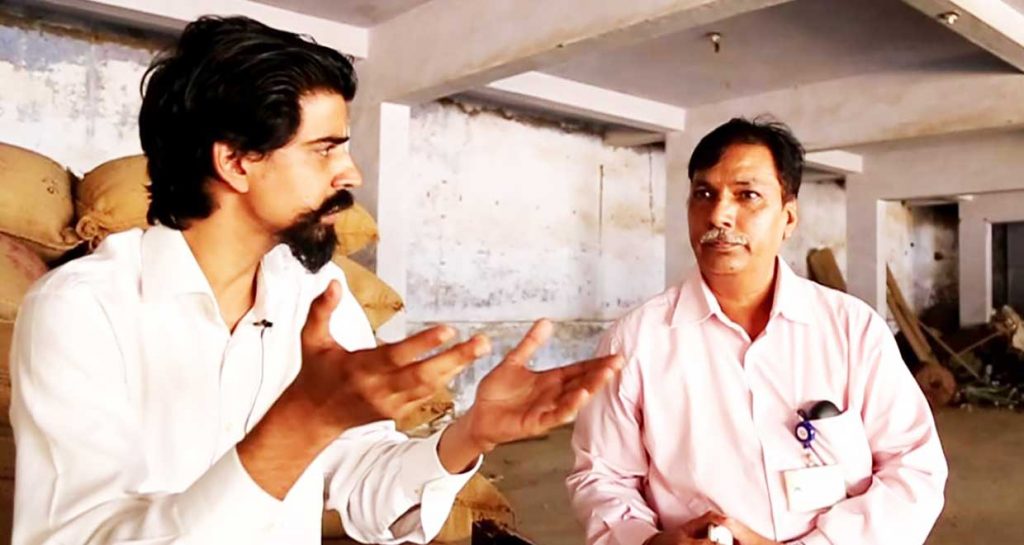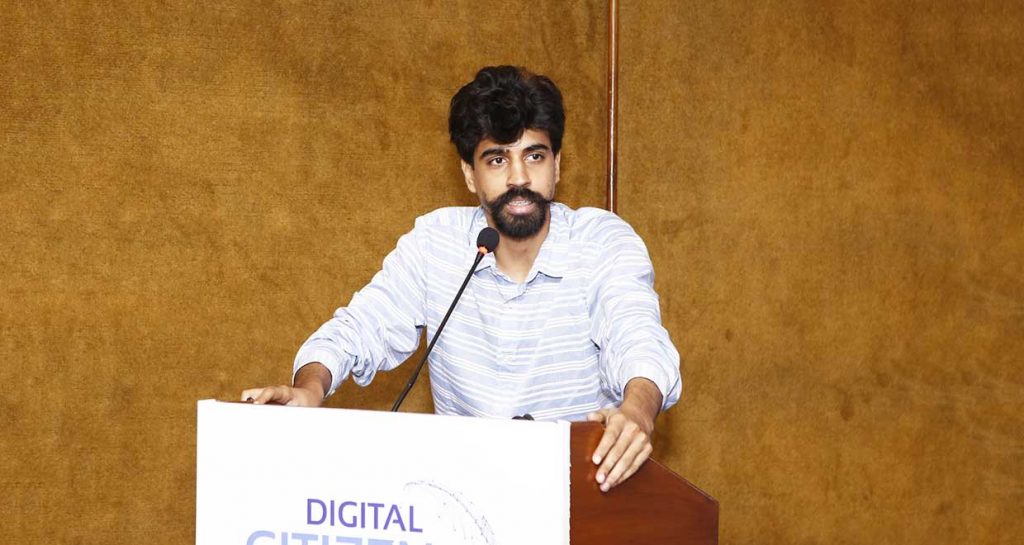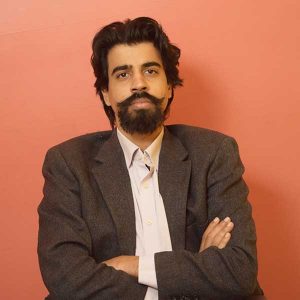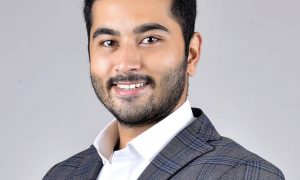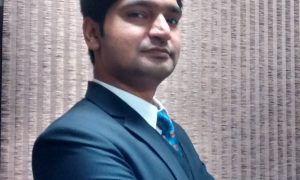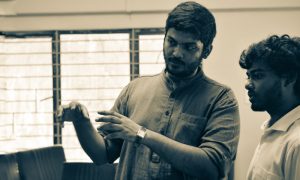Kazim Rizvi graduated in Law from Christ College of Law, Bangalore in 2012. He always has had a deep interest in the government mechanism, social science and politics. Kazim practiced Law for a few months but soon realized that public policy was his true calling in life. He strongly believes that the policy route is the ideal as you understand the gaps in the governance structure hence, helps an effective leader to bring change. Quoting Kazim- “For me, nothing is more important than national service.”
In 2016, he founded The Dialogue which is a policy institution to drive a dedicated narrative on policy and development in India. Kazim is also the Co-Chair of the public policy division at The Indian National Bar Association.
In this interview, he talks to us about:
- His experience at Christ College of Law.
- His role at The Indian National Bar Association
- His venture- The Dialogue.
- The importance of national service.
How would you like to introduce yourself to our readers?
Thank you to Superlawyer for reaching out to me. I would like to introduce myself as a policy professional and first-generation entrepreneur based out of New Delhi. Having graduated five years ago from Christ College of Law, I practiced Law for a few months before eventually deciding to move into policy research and advocacy with the objective of making a strong impact to take India forward.
How did your interest gravitate towards Law?
Since I was a child, I had a deep interest in politics and social science and was always curious to understand how I could make our country a better place to live. I took commerce in class 11 as I realised that medicine and engineering were not my cup of tea. Law was considered a serious option post class 12 as it was a professional course and the idea of a five-year course made it lucrative to pursue, as opposed to the 3+3 option. For me, the idea of understanding India’s governance structure through the study of Law was more important than finding a job out of Law school, as I had a fair idea that I would eventually move to policy and development. This was re-enforced during my time at Law school, where in the latter stage I started considering policy as a profession.
How was the experience at Christ University?
My experience at Christ University was certainly memorable! More importantly, I believe that the decision to go to Bangalore, when I had a couple of options for National Law Schools, was the best decision I have made till now. Moving from Delhi to Bangalore, living on your own, learning new perspectives and throwing yourself at the deep end of intellectual debates shaped my personality and thought process. We had a great set of batch mates who all had a high-level stamina to think through ideas. In my network of friends, we had a great atmosphere of debates, discussions and we were all quite charged up about our opinions. The long drawn political debates at our hostel, outside college, discussions on history, philosophy etc. led to an argumentative and opinionated mind.
How can a Law student shape up his profile while still in Law school?
I think learning outside the classroom is as important as the structured learning we go through inside the classroom. Moots and academic writing helped me tremendously, as that laid the basis of conducting proper research. One needs to strike a balance of studies and extra-curricular activities. For someone who has little faith in the rote learning system, extra-curricular activities helped me develop my skills for the real world. And to this day I am reaping the benefits of effective research, asking the right questions, framing the right arguments, analytical skills etc.
Would you say that Law school prepared you for the real world practice of Law?
(Soon after graduation Kazim started working at the Law office of Anuj Puri.)
In my last semester, I gravitated towards litigation as a career option. I am grateful to Mr. Anuj Puri for offering me to work in his office and the few months I spent there gave me a good exposure into the world of litigation. Law school did prepare me for the real world, but only after a few months I realised that whatever I learned in Law school did not matter much as litigation was a different teacher altogether. Once you’re in it, you’re on a very steep learning curve, and after a while, how well you did in Law school matters little.
How were you associated with the Swaniti Initiative?
(Swaniti Initiative delivers development solutions to over 90 Parliamentarians across states and party lines on issues of health, education, gender and livelihood.)
Swaniti was my big break to the world of development and policy. Swaniti started with a development fellowship where they selected fellows to work with an MP to support his/her programmes in the constituency. This was quite innovative back in 2013 and I was fortunate to having being selected and work with Mr. Jay Panda, one of the most dynamic, well-spoken and qualified MPs of our times. The fellowship was challenging as we were tasked with improving the medical infrastructure of his constituency, Kendrapara, off the coast of Odisha. Since there was only one Primary Health Centre at that time, medical access was a major challenge faced by the people of Kendrapada. People had to travel long distances and wait to get health check-ups done and that affected their well-being. To meet this challenge, we devised the idea of “Mobile Health Van”, which would travel across Kendrapada and provide free medical check-ups as well as diagnosis, medicines and basic medical procedures to the people. By the time I left, we had delivered two MHVs that would go from village to village, catering to two hundred people every week. We got the entire programme sponsored externally.
What are your roles and responsibilities as Co-Chair of the public policy division at the Indian National Bar Association?
With the Indian National Bar Association, I am involved in planning and executing programmes and public discourses on key policy issues. Right now we are working on data governance and developing programmes to facilitate policy discourse.
Public policy is your niche; how did you develop an affinity for it?
As a student of public-policy, I believe that it is too broad a subject to be considered as a niche. However, I do believe those five years after college, I am more of a policy professional than a lawyer, so in that case yes; it is going to be my area of discipline for the rest of my career.
As I was always interested in politics and development, closer to the end of Law school, I came across the discipline of public-policy, which catered to people who wanted a career in public service and governance issues. I think if you are serious about wanting to make an impact, then the policy route is quite effective, as that provides you with a platform to develop ideas that could solve governance challenges. Even for those who want a political career later in their lives, the policy route is ideal as you understand the gaps in the governance structure and would be an effective leader to bring change. For me, nothing is more important than national service. The opportunity to bring change and development is not just a matter of words, but a reality you see when you work in the policy domain. This gives you the motivation to carry on, and to me, serving the people of India is a matter of great honour.
One should ideally have a tinge of idealism along with pragmatism to fulfil her/his role as a policy professional. Since I missed out on Civil Services as I never had an inclination to write the exams, working as civil- society to impact policy is what I could do.
Tell us about your brainchild- The Dialogue.
The Dialogue is a policy institution to drive a dedicated narrative on policy and development in India. It reports on and analyses development of multiple sectors such as data, education, food security, healthcare, foreign policy, legislations, law reforms, energy and climate change, environment and other relevant development issues. It drives a continuous feed on these issues and simplifies complex policy developments for the reader. We undertake research, monitoring and evaluation, impact assessment, case studies, deliver conferences and communications to drive policy discourse by working closely with our stakeholders and partners.
We engage with policy and development professionals to publish original and curated content with us. At the same time, we have a team of advisors who are experts in the field of their domain guide the narrative of the website to ensure we publish insightful content. We also have more than twenty knowledge partners in the form of think-tanks and research institutions to drive content and mainstream research briefs and development news by converting them into simple articles.
Having completed ground level impact studies, research partnerships, and policy campaigns with leading government and non-government stakeholders, The Dialogue consists of a wide array of services aimed at filling the void in the public policy landscape.
Apart from having a young team of well-qualified and driven public policy professionals, The Dialogue’s work is strongly rooted on the experience of our network consisting of former diplomats, senior military generals, academics, economists, and beyond. This combination is further cemented by a wide array of contributors, each of who are experts in the various sectors that The Dialogue works on.
You did not opt for the traditional practice in Law. Why?
I started working in litigation right after college, but by then I was convinced that policy is what I was going to do for the rest of my life. In fact, in my last semester I started looking it up as a serious career option. Back then it was not that popular a stream as it is now, so you did not have much precedence to look up to. I did not know of any seniors or even my contemporaries who were serious about diving into this field. A couple of my friends did touch upon this but it took us a year or two to understand the career path, as it is not as defined as Law. In that case, getting into policy was not straightforward.
What made me take the road less taken is my passion for serving the country through high-impact ideas. The decision was easy but the path was challenging, as the job market was (and is still not) well defined. So you had to pick and choose carefully, take what comes towards you and build a network of experts. Thankfully, I seem to be going somewhere with The Dialogue, so that is a positive and of course very exciting to look forward.
How can an interested person contribute to The Dialogue?
We work with policy professionals, freelancers and researchers for our projects and programmes. Our working model is flexible and gives our people the freedom to work on projects of their liking as and when they want to. We have a core team that looks after the website, research, business development etc. and we bring on board people as and when we feel the need for their expertise for our projects. Anyone who has basic skillset and passion for policy and contribute to The Dialogue in the form of articles and research. We are always open to new research ideas so we welcome those who want to work and deliver projects with us. Those who are interested to conceptualise or work on our existing programmes, please feel free to write to me.
What would be your parting message to young graduates looking to create an identity in the legal fraternity?
I believe that we should not rush into any career option after college, rather, take your time to know yourself better and understand where you can make maximum impact professionally. Don’t be afraid to take risks and embrace failures as that will teach you more than success. Things will open up to you gradually and with patience we all get on the right track.

